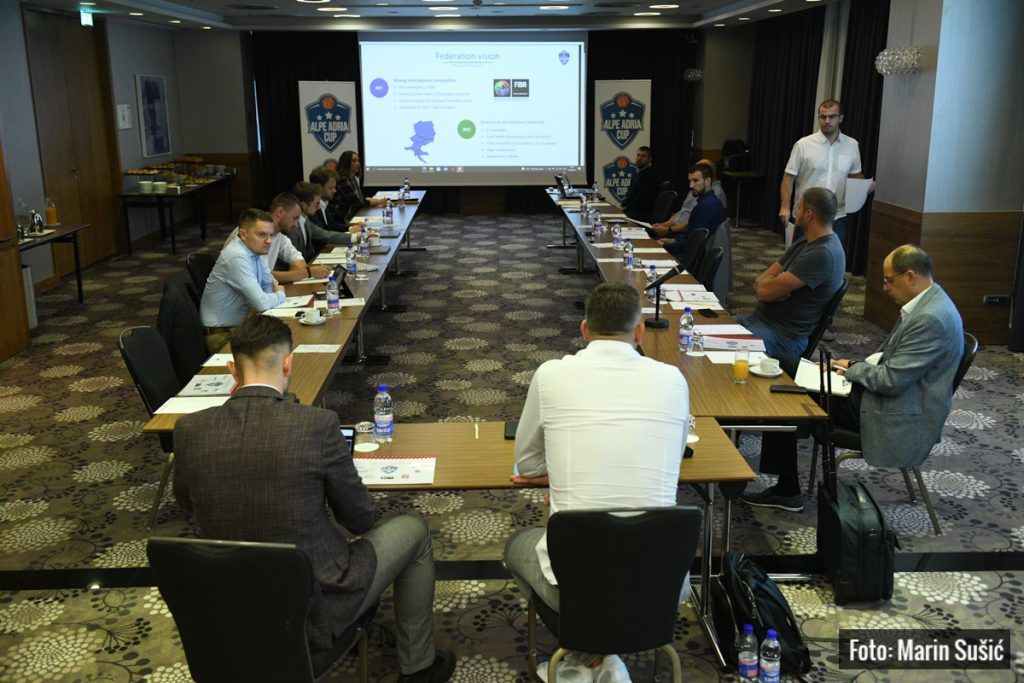We are just days away from the start of the new Alpe Adria Cup (AAC) season. Before ending a year-long hiatus without a game, the members of participating federations, the sport director of FIBA and the AAC board met in Zagreb, where they discussed the future of the AAC.
The goals of this meeting were clear, making an important first step to recognize Alpe Adria Cup as an FIBA official competition in the future. In attendance were secretary-generals from Austria, Slovakia, Croatia, Slovenia and sports director of FIBA Europe, which supports the plan of board members of AAC.
“We are really looking forward to the start of the season. After a one-year break, the level of competition will be higher than ever. And this is just the start for a bright future of Alpe Adria Cup. I wish all the best to the participating clubs,” said Johannes Wiesmann, Managing Director of the AAC, after the meeting.
Now we are ready for the action! In just of a couple of hours the AAC season 2021/2022 will officially start with two newcomers going head-to-head: MKS Dabrowa Górnicza – Spišskí Rytieri (Thursday 23rd of September at 18.00 h). Game week 1 will also feature some interesting matches. Group A: GKK Šibenka – Patrioti Levice (Tuesday 28th of September at 18.00 h), BK JIP Pardubice – Flyers Raiffeisen Wels (Wednesday 29th of September at 17.30 h). Group C: BK IMMOunited Dukes Klosterneuburg – MKS Dabrowa Górnicza (Tuesday 28th of September), KK Velika Gorica – Spišskí Rytieri (Tuesday 28th of September at 18.00 h). Group D: Nutrispoint Ilirija – BC Prievidza (Monday 27th of September), KK Adra Oil Škrljevo – BC Prievidza (Wednesday 29th of September at 18.00 h).
The Alpe Adria Cup will feature the best lineup in the history of this competition. Back are reigning champions from Pardubice and also their opponent from the finals – Děčín. Since the beginning of the Alpe Adria Cup, we can count on Patrioti Levice, from Slovakia, we have the largest group of teams – 4, including both league finalists. Czech Republic, Croatia and Austria provided 3 clubs, Slovenia two and we have one from Poland.
16 teams from 6 countries, divided into 4 groups, with each team playing the others in its group in home and away games, following a round-robin system. Group winners and teams in second place will earn tickets to the quarterfinals. The play-offs will be played in home and away games.
Photo: Marin Sušič

